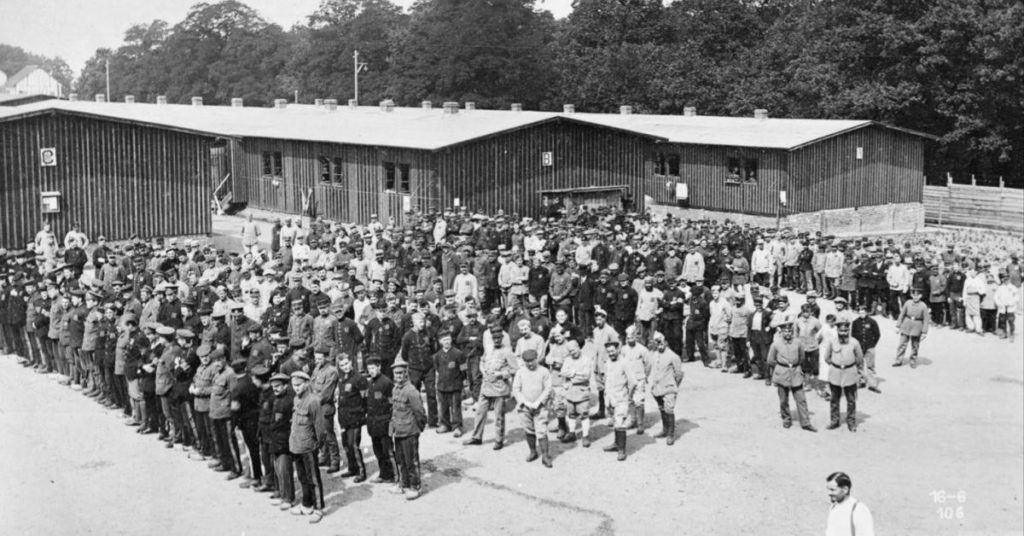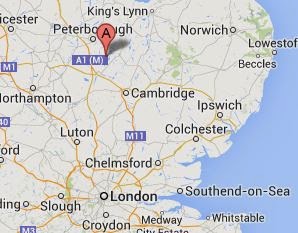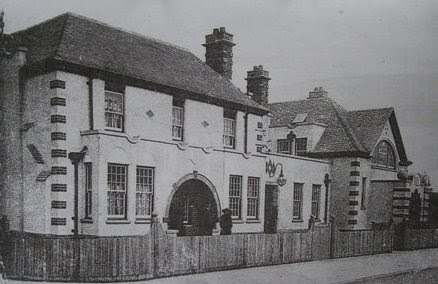Acknowledgement
Many thanks to Martyn Smith, grandson of Horace Jaikens, for kindly sharing information and photographs about his grandfather.
On 1 February, 1941, Josef Jakobs, erstwhile German spy, was found by a couple of farm workers in a potato field southwest of the town of Ramsey, Huntingdonshire. The farmers found Harry Godfrey, a member of the local Home Guard, at a nearby farm and he promptly phoned the Ramsey Police Station at 8:50 am. Godfrey reported to Acting Inspector Jaikens that an injured parachutist had been found near Wistow Fen Farm. The man was a suspected enemy agent and had been disarmed and was under the supervision of two members of the Home Guard.
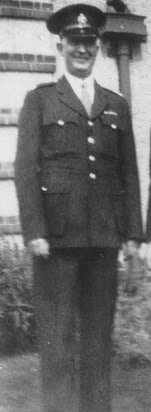
Jaikens immediately phoned Acting Sergeant Pottle from nearby Bury, Captain W.H. Newton, Officer Commanding the Ramsey Company Home Guard and Detective Sergeant Thomas Mills from Huntingdon. Captain Newton collected Lieutenant John Curedale and drove to the farm where they collected Jakobs and his possessions and arranged for a horse-drawn cart to transport him to the Ramsey Police Station.
Prior to Jakobs’ arrival at the station, Captain Newton arrived and handed over Jakobs’ possessions to Jaikens. These included: £491 in £1 Bank of England notes, a Mauser automatic pistol, ammunition, a picture post card, a packet of minced meat sandwiches, a portion of brown sausage, a small bottle containing spirit, a metal crash helmet, a bluish coloured attache case containing a wireless transmitting set, a ration book and two identity cards-one was blank and one was marked 656/301/29 and made out for James Rymer, London, 33 Abbotsford Gardens, Woodford Green, dated 4 June, 1940.
Mills arrived at the police station shortly before 10 am just in time to welcome Jakobs and his Home Guard escort, who arrived at 10:15 am. Jaikens ascertained that Jakobs was suffering from a leg injury and summoned Dr. Willem Hertzog of Ramsey who determined that the prisoner had a broken right ankle. Jaikens and Mills asked Jakobs a few brief questions but found that he did not speak very good English. A further search of Jakobs yielded a another five £1 Bank of England notes, a touring map of Great Britain, a German-English dictionary, an electric torch and a variety of personal items.
Jaikens described Jakobs as being 42 years old, height 5’9″, brown hair turning grey, brown eyes, pale complexion, clean shaven with hollow cheeks. Jakobs stated that he was born in Luxembourg and was a dentist. He had been sent to England to report on weather conditions. Mills contacted Major Dixon, the Regional Security Liaison Officer from Cambridge) who arrived at noon. At 3:30 pm, Dixon and Mills escorted the prisoner and his property to London.
After Jakobs’ departure, Jaikens and Pottle interviewed various witnesses and Jaikens sent a report to the local police superintendent.
Interestingly, of all those participants in Jakobs’ capture and first interrogation, only two were not summoned as witnesses at Jakobs’ court-martial: Inspector Jaikens and Lt. John Curedale of the Home Guard.
Horace Jaikens
Horace Jaikens was born 1 January, 1898, in the town of St. Neots, southwest of Huntingdon in Huntingdonshire. Horace was the eldest of three children and helped his parents, James & Avery, farm near Abbotsley, east of St. Neots.
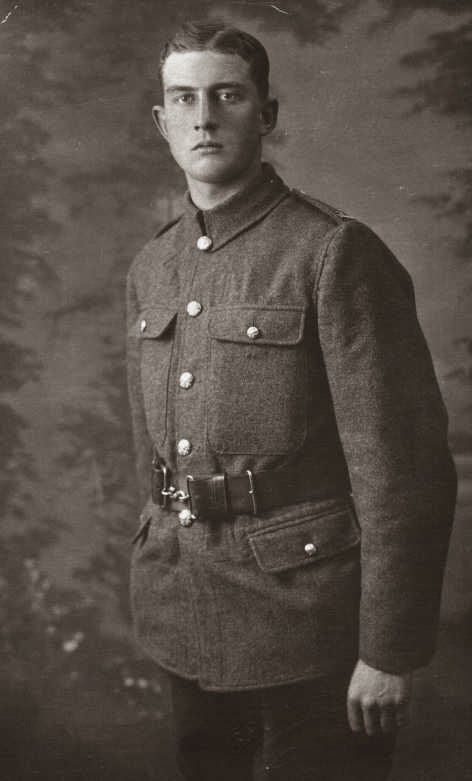
With the advent of war, Horace enlisted with the Huntingdonshire Cyclist Battalion at the end of November 1914. In 1916, Horace was sent to France with the Royal Warwickshire Regiment.
On September 5, 1916, Horace was reported missing in action. The family was on tenterhooks for weeks until finally, in October, Horace was listed as a Prisoner of War at the Giessen camp in Germany. He had been wounded by machine gun fire in August and taken captive by the Germans who nursed him back to health.
Horace spent the rest of the war in Giessen and wrote several letters back to his family from the POW camp. In one, he expressed a wish for some particularly valuable items: cake, cigars and a piece of bacon, should they be allowed to send a care package to him.
Upon his release and repatriation to England, Horace joined the Huntingdonshire Constabulary and served in Huntingdon, Buckden, St. Ives and Ramsey.
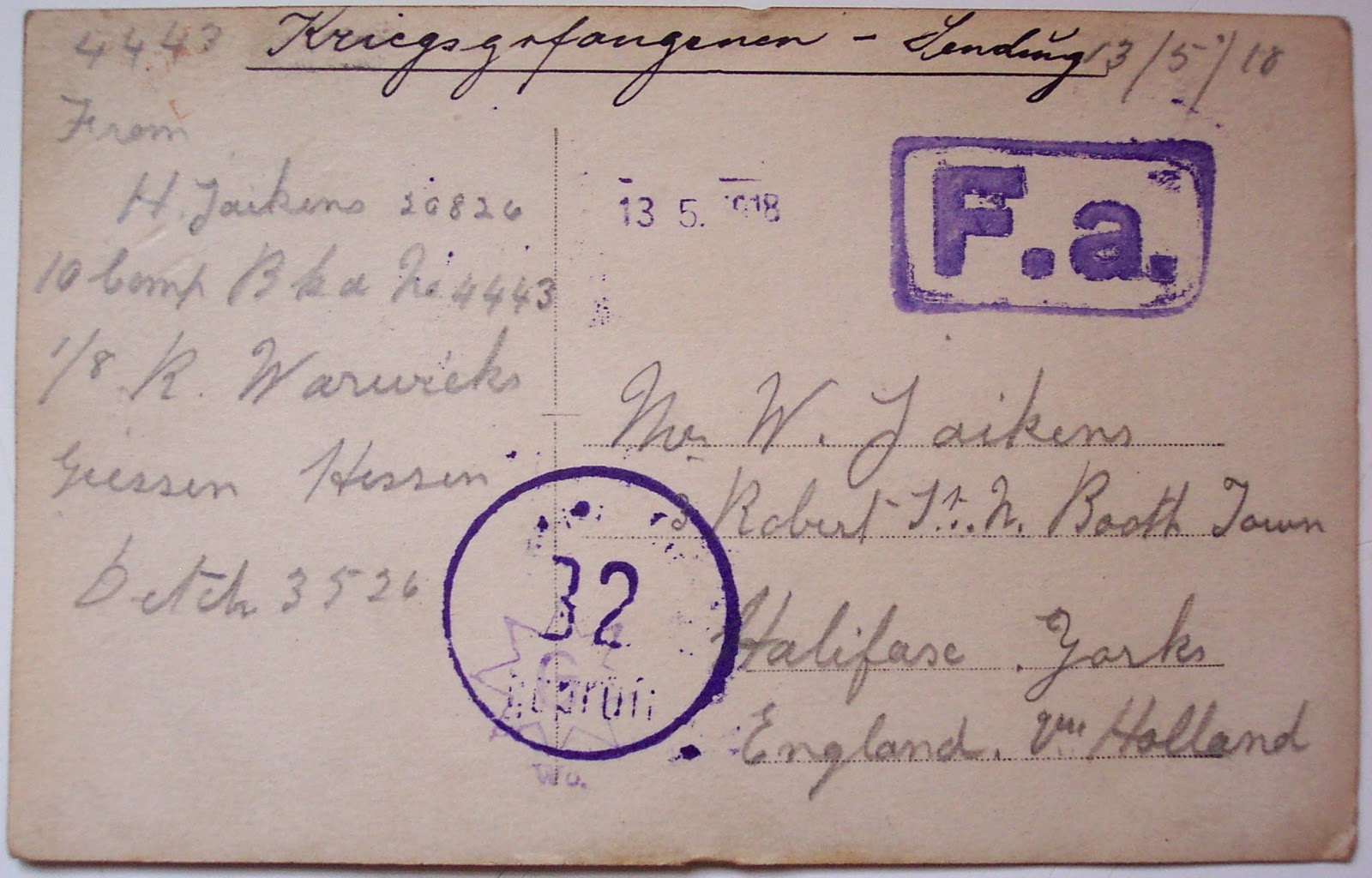
Early in his career with the police force, Horace married Clara Edna F. Clark in 1921. In 1925, Horace and Clara welcomed their only child, a daughter, into their family. Horace was to have retired in 1939, but with the outbreak of war, continued to serve in the police force, notably in the town of Ramsey.
Horace’s wife, Clara, passed away in February, 1984 while Horace passed away on 23 September, 1988, at the age of 90 years.
It is interesting to note that Horace and Josef were both born in the same year, 1898. Both fought in World War I, albeit on opposite sides and both were wounded. Their paths diverged-one became a police officer and one ended up a spy. Their interaction on 1 February, 1941, was brief and compounded by a language barrier. And yet, 73 years later, their grandchildren share information as they research the lives of their ancestors.
References
Ancestry Genealogy
Huntindonshire Cyclist Battalion
National Archives, Security Service files, KV 2/24
Header Image – Giessen POW Camp – Imperial War Museum – fair use.
